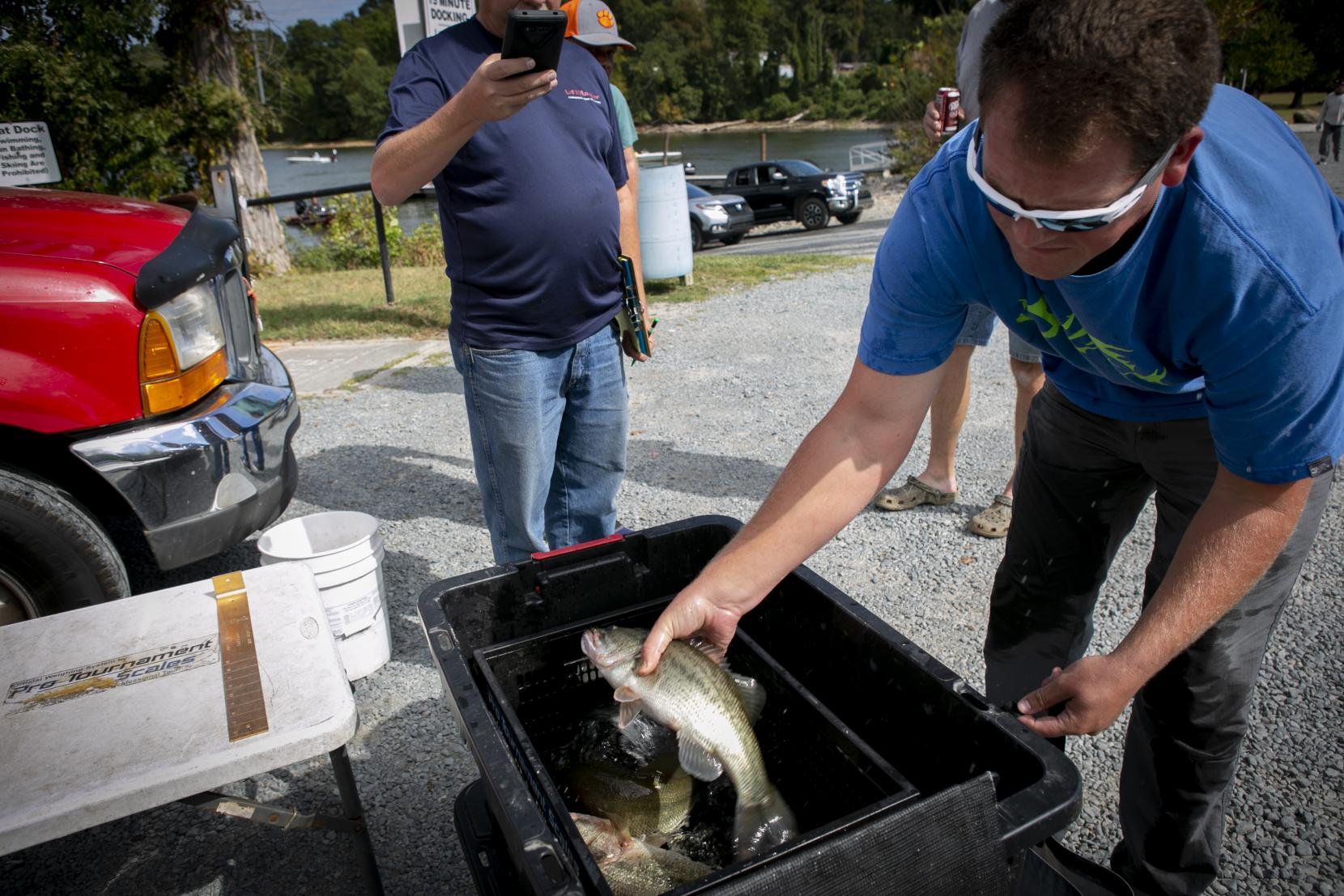North Carolina DEQ nixes deal to allow more cyanide into Badin Lake
Public outcry over a transparent plan to evade pollution limits convinced the North Carolina Department of Environmental Quality to reverse course on the proposed deal.
Alcoa had a problem: Discharges from its long-shuttered aluminum smelting plant at North Carolina’s Badin Lake contained unacceptable levels of cyanide and fluoride even after partial re-construction of a water piping system required by a 2019 settlement SELC helped negotiate.
Badin Lake is a popular destination for hiking, camping, swimming and other outdoor recreation. It also supplies drinking water to the Town of Albemarle, where the poverty rate is nearly 25 percent, according to the latest census data.

Community members say Badin Lake is a popular fishing spot for many.
Monitoring data has shown concerning levels of cyanide and fluoridedischarges into Badin Lake and Little Mountain Creek. The pollution appears to come from waste left on site from when Alcoa operated the aluminum production facility. Exposure to even small amounts of cyanide is dangerous to both fish and people.
But even with the new water piping system, Alcoa had been unable to consistently meet discharge limits set in their permit. So the $12 billion company made a proposal to the DEQ: It would build a newpipe to divert some of the contaminated discharge to a different location, one that would flow directly into the lake.
“This was a plan to simply divert cyanide contaminated water discharge from one water body to another, instead of addressing the source of the problem – waste left on site,” said SELC senior attorney Chandra Taylor. For more details on her work to protect Badin Lake and surrounding communities, watch the video.
After hundreds of public comments in opposition — including comments submitted by SELC on behalf of Concerned Citizens of West Badin Community and the Yadkin Riverkeeper — DEQ rejected the proposal.
Alcoa will now have to come up with a different solution to meet permitted contamination limits. Taylor says the ideal solution would be for Alcoa to clean up the contamination source.
SELC has been working with local partners for more than a decade to ensure Alcoa meets its obligations to deal with the toxic legacy of its smelting plant.
